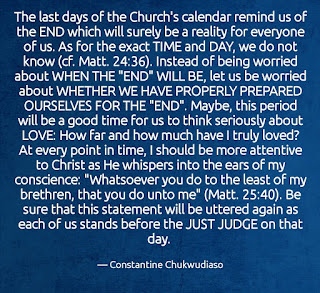Have I Brought Anyone to Jesus (Feast of St Andrew, Nov. 30)

The first reading (cf. Rom. 10:9-18) clearly spells out that “anyone who calls upon the name of the Lord and believes with his heart will be saved”. However, it raises some very important questions: “How are men to call upon him in whom they have not believed? And how are they to believe in Him of whom they have never heard? And how are they to hear without a preacher? And how are men to preach if they are not sent?” From all these, it is abundantly clear that faith comes from hearing – hearing the Word of God. Andrew understood his role as an apostle of Christ; and who is an apostle? An apostle is one who has been sent to preach Christ. Andrew understood this very well, and that was why he went about making Christ known, introducing people to Christ and proclaiming what he believed to others. And in this way, he must have succeeded in building the faith of others. St. John’s gospel account gives us more insight into the life of St Andrew. In Jn. 1:38-39, it is written that it was Andr...






















